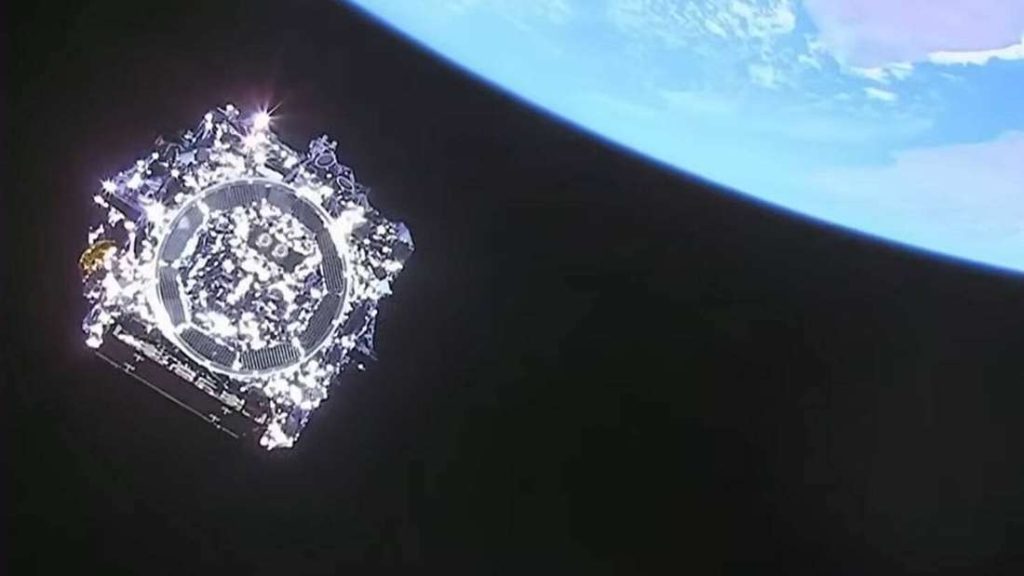
NASA’s James Webb telescope breaks new records in the vastness of the universe – and makes a discovery that delights researchers.
Washington, – On his journey through the universe, the “James Webb” telescope US NASA It’s the next great discovery. The US space agency’s massive project has discovered a seemingly 13.5 billion-year-old galaxy. If the researchers’ findings are correct, this would be the oldest and most distant star system ever observed.
Rohan Naidoo of Harvard University’s Center for Astrophysics told the agency France Press agency: “We will probably see the farthest starlight anyone has ever seen.” The newly discovered galaxy is called “GLASS-z13” and is estimated to have formed about 300 million years after the Big Bang.
The James Webb Telescope has discovered the oldest known galaxy
Last week, NASA’s James Webb Telescope delivered the first Impressive impressions from space – Including the “deepest and most accurate infrared image of the early universe” with a galaxy about 13 billion years old and the Carina Nebula – a cloud of cosmic dust and gas 7600 light-years away:
The discovery by a team of 25 astronomers from around the world is based on raw data from a space telescope instrument that captures infrared radiation. When the data is visualized, the galaxy appears as a red circle with a brighter center. The assessment has already been submitted to a specialized journal, but has not been independently verified by other scientists.
Space: Researchers cheer for discovery of NASA’s GLASS-z13 – ‘records stumbled’
Astronomy researchers react enthusiastically to the possible discovery: “Astronomy records are already falling, others are shaking,” Thomas Zurbuchen, chief scientist at NASA, wrote on Twitter. Usually he does not cheer until after the results of the study have been examined by other scientists. “But this looks very promising.”
The James Webb Telescope, also built with German participation, was launched in December 2021 after decades of preparation outer space was brought. It is now more than a million kilometers from Earth. It explores the early days of the universe, just a few hundred million years after the Big Bang about 13.8 billion years ago. Astronomers hope to draw conclusions about the formation of the first stars and galaxies.
NASA Plans Next Huge Space Project — With the Help of Elon Musk
Meanwhile, NASA is already planning the next mega-project – with the help of billionaire Elon Musk: apart from the current adventure, the US space agency has reported the plans for the following telescope: the “Nancy Grace Roman Space Telescope” is to be commissioned by the private space company in 2026 SpaceX to be sent into space. Tesla mogul received an order of about $255 million for this.
The telescope, named after a former NASA astronomer, is said to be similar to this Hubble telescope which actually started in 1990. The development of the research object consumes an estimated $3 billion in costs.
Meanwhile, an astrophysicist from Harvard University is sure: there are extraterrestrials. Evidence that other living things are also outside our world, Does he have enough. (PF/AFP)







More Stories
Exploding Fireball: Find the meteorite fragments
Neuralink's competitor lets blind people see again with an implant
A huge meteorite has hit Earth – four times the size of Mount Everest